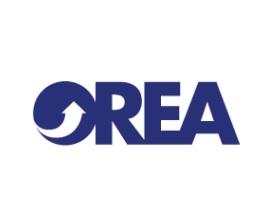The report from the Ontario Real Estate Association’s Presidential Advisory Group on Diversity, Equity and Inclusion. The overarching goal of the PAG is to identify where systemic racism occurs in the real estate and housing sectors…
Over the past two years, a racial reckoning has taken place, triggered by a number of shocking acts of violence against racialized people. There is a long history of racism and discrimination in Canada’s housing sector, where Black, Indigenous, People of Colour, and those identifying as LGBTQ2S+ have been segregated into areas that are deemed “less desirable.” Deliberate isolation away from schools, transit, and other community supports that enable neighbourhoods to thrive has led to uneven growth in communities across our province. Even today, the journey to homeownership is fraught with social
injustice challenges for many. Deliberate and sustained actions are required to dismantle systemic racism in Ontario’s real estate and housing sector.
In response to a growing movement for change by Canadians, OREA established the Presidential Advisory Group (PAG) on Diversity, Equity, and Inclusion (DEI). The PAG is a taskforce made up of nine members of the Ontario REALTOR® community, all representing diverse lived experiences. The goal of the PAG is to identify where systemic racism occurs in the real estate and housing sectors and seek to change policy, perceptions, and attitudes through education, advocacy, and research.
Their Mandate
OREA’s Presidential Advisory Group on Diversity, Equity and Inclusion has committed too:
- Understand, address, and dismantle systemic racism in Ontario’s Real Estate and Housing Sectors;
- Identify and challenge where sector systemic racism occurs and seek to change perceptions and attitudes through education, policy, and leadership development; and
- Advance diversity, equity, and inclusion in Ontario real estate for Black, Indigenous, People of Colour, LGBTQ2S+, women, and people living with disabilities.
This document is the PAG’s fnal report to the OREA Board of Directors with concrete recommendations on actions that the Association can take to eliminate racism and embrace diversity and advance equality and inclusion in real estate and housing in Ontario.
The recommendations are intended to deliver on the PAG’s mandate and respond to the extensive research conducted within Ontario’s Real Estate and Housing sectors. Overall, the PAG identifed three areas for action, each representing key audiences and structures that OREA can infuence to achieve its equity, diversity, and inclusion objectives.
Public Policy: Infuencing public policies and decision-makers to address systemic racism and discrimination.
Real Estate Industry: Engaging key organizations in the real estate sector, REALTORS®, and consumers to facilitate a racism and discrimination free real estate industry.
OREA Governance & Operations: Imbuing equity, diversity, and inclusion into how OREA governs and operates and model the change that we want to see.
Public Policy
Key Findings
Housing affordability is a growing problem across Canada and disproportionally affects disadvantaged communities. According to 2018 Statistics Canada data, in Ontario, 72% of those who are not a visible minority own their homes, as compared to 43% of black respondents, 50% of Indigenous respondents, and 67% of other visible minorities who own homes. Similarly, 71% of heterosexual persons are homeowners, whereas only 47% of those who identify as homosexual or bisexual are homeowners.
When there is an instance of discrimination during the home buying or renting journey, people don’t always know how to report, and the enforcement mechanism isn’t strong. Both REALTORS® and consumers say that they have been hesitant to report incidences of discrimination in the past because they do not believe action would be taken, feel that it’s a long and tedious process, or are not sure of where to go for help, among other reasons.
A majority of both consumers and REALTORS® outright disagree that the process is free from discrimination. 93% of Black REALTORS® and 60% of all consumers surveyed disagree that renting is free from discrimination. 43% of REALTORS® say they’ve seen a rental deal fall through as a result of discrimination.
Objectives and Recommendations
Objective 1: Help members of disadvantaged communities become homeowners.
- End exclusionary zoning in Ontario cities.
- Reduce government-imposed costs on new homeownership programs for disadvantaged rental projects, including duplexes, triplexes, communities and have proceeds be re-invested and walk-ups.
- Build 99,000 community housing units over the next 10 years to clear the backlog and accommodate future growth
- Mandate transit-oriented, mixed-income, and high-density avenue development in urban and suburban areas.
- Promote and help scale innovative approaches to affordable housing development
Objective 2: Incorporate Equity, Diversity, and Inclusion into existing public policy.
- Mandate the equal treatment of all individuals under the Condominium Act to be inclusive of diverse families (e.g., same sex couples/parents).
Objective 3: Help disadvantaged communities access affordable home financing and rental support.
- Encourage expansion of affordable into new social housing stock, grants, rebates, low interest loans, rent subsidies, etc.
- Engage major fnancial institutions (and/or . associations) in addressing inequities for BIPOC community.
- Advocate for a review of Ontario Residential suburban areas. Tenancies Act (2006), with the goal of improving access to affordable homes for disadvantaged communities.
Real Estate Industry
Key Findings
Racism and discrimination exist in the housing and real estate sectors, and there is currently a lack of awareness amongst REALTORS® on this issue and how to address it. Over one third of REALTORS® have experienced discrimination or racism, and one in four BIPOC REALTORS® say that a client has refused to work with them because of their identity. Two in ten consumers say they’ve been treated unfairly, and BIPOC and LGBTQ2S+ individuals are more likely to say this has happened to them.
There are no easy, effcient, and “safe” reporting mechanisms for consumers to report incidents and access legal or education resources to address the incident. There is a clear gap in the consumer experience when it comes to feedback mechanisms and support when racism or discrimination occurs. 80% of consumers don’t know where to go to report, and 75% expect their REALTOR® to be involved in guiding and supporting.
Visible minorities often face fnancial inequities and barriers. BIPOC individuals engaged in Ipsos’ qualitative engagement discussed the fact that fnancial inequities are often faced by visible minorities. 16% of consumers surveyed indicated facing roadblocks during the mortgage process due to their race, ethnicity, gender identity, or sexual orientation. 45% of REALTORS® and 59% of consumers support providing more fnancial assistance to disadvantaged communities in the renting/leasing or buying/ selling of home.
Objectives and Recommendations
Objective 4: Enhanced DEI education opportunities and resources for REALTORS® and other professionals within the industry.
- Support the inclusion of mandatory DEI education in Real Estate Council of Ontario (RECO) registration and continuing education
Objective 5: A process for registering and investigating complaints that is easy to access and navigate, and results in stronger penalties for racist or discriminatory behaviour.
- Collaborate with RECO, CREA, and local Boards to establish a process and defne reporting and investigation roles and responsibilities.
- Encourage local uptake and enforcement of the updated REALTOR® Code of Ethics.
Objective 6: Encourage more diverse Ontarians to join the real estate profession and serve in positions of leadership.
- Support DEI recruitment and hiring practices at the local Board, brand, brokerage, and individual level.
OREA Governance and Operations
Key Findings
There is a lack of representation and diversity in the structures that support organized real estate. Interviews with individuals from organizations that represent OREA’s BIPOC stakeholders identifed improved representation in OREA’s leadership and annual training as important action areas. 42% of REALTORS® support the organization increasing the diversity of its volunteer leaders on the Board of Directors and Committees, and 63% of consumers support ensuring that OREA’s senior management and Board are diverse.
There is a desire for enhanced training practices on diversity, equity, and inclusion for OREA volunteers and REALTORS®. When asked about OREA-led initiatives to address racism/discrimination, about half of REALTORS® identifed diversity and inclusion training as having potential for high impact. 63% of consumers believe mandatory training on diversity and inclusiveness would be a useful program; this is higher among BIPOC and LGBTQ2S+ respondents by more than 10 percentage points.
Despite the survey results, there are still a number of REALTORS® who don’t recognize that there is a problem. In the absence of overt displays of discrimination, REALTORS® fnd it challenging to recognize prejudice and report that systemic discrimination is more anecdotal than from direct experience. There is a discrepancy between the perceived role of the REALTOR® and the role their clients expect them to take in the face of discrimination. While consumers generally expect their REALTOR® to intervene when they witness discrimination, it was found that REALTORS® are unlikely to do so because acts are deemed subtle and inconsequential to the objective at hand (i.e., the closing of a deal).
Objectives and Recommendations
Objective 7: Increased awareness amongst membership and consumers.
- Develop a communications strategy to promote awareness, new research, and resources surrounding the issues.
- Leverage the Centre for Leadership Development to design and deploy DEI content for local boards, brands, brokerages and associations.
Objective 8: Increased equity diversity, and inclusion in OREA’s staff and leadership.
- Review OREA governance structures, as well as Board selection processes and policies.
- Leverage OREA’s existing internship and mentorship programs to facilitate greater recruitment of disadvantaged youth.
Objective 9: Sustained DEI efforts and progress at OREA.
- Create a resource to lead this portfolio of work across the organization.
- Strengthen DEI across OREA HR policies, practices, and procedures as well as procurement and investment practices.
OREA was one of the frst organizations in the real estate community to create a task force focused on diversity, equity, and inclusion. This was no small task. It required a signifcant investment of funds, staff resources, and volunteer hours. This commitment shows your Association’s dedication to diversity, equity, and inclusion. Where other groups made statements, Ontario REALTORS® created a plan for action and change.
I have shared with you only the executive summary highlights of this report. I encourage you to take the time to review the details of the entire report by clicking here.


